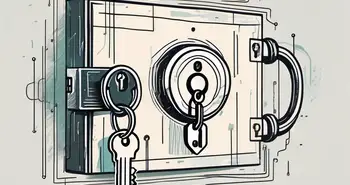A Short Introduction of Smart Contracts

Smart contracts have taken the world by storm, revolutionizing the way we engage in various transactions and agreements. As an expert in this field, I want to provide you with a comprehensive guide to help you understand the ins and outs of smart contracts. Whether you're new to the concept or looking to deepen your knowledge, this article will give you a solid foundation to navigate the world of smart contracts.
Understanding the Basics of Smart Contracts
Definition and Purpose of Smart Contracts
At its core, a smart contract is a self-executing agreement with the terms of the agreement directly written into code. These contracts are built on blockchain technology, which enables secure transactions without the need for intermediaries.
The purpose of smart contracts is to automate and streamline processes while ensuring transparency and trust between parties involved. By removing the need for intermediaries, smart contracts eliminate the potential for human error, reduce costs, and increase efficiency.
The Origin and Evolution of Smart Contracts
The idea of smart contracts was first introduced by computer scientist Nick Szabo in the early 1990s. Szabo envisioned a digital protocol that could facilitate, verify, and enforce the negotiation and performance of contracts. However, it was not until the advent of blockchain technology that the full potential of smart contracts was realized.
Blockchain, with its decentralized and tamper-proof nature, provided the perfect platform for the execution of smart contracts. The most notable blockchain platform supporting smart contracts is Ethereum, which has paved the way for the development of decentralized applications (DApps) powered by smart contracts.
Since the introduction of smart contracts, there has been a rapid evolution in their capabilities and applications. Initially, smart contracts were primarily used for simple financial transactions, such as transferring digital currencies. However, as the technology matured, developers began exploring more complex use cases.
Today, smart contracts are being utilized in various industries, including supply chain management, healthcare, real estate, and even voting systems. For example, in supply chain management, smart contracts can automate the tracking and verification of goods, ensuring transparency and reducing the risk of fraud.
Furthermore, the potential of smart contracts extends beyond traditional contracts. They can also be used to create decentralized autonomous organizations (DAOs), which are organizations that operate based on predefined rules encoded in smart contracts. These DAOs can function without a central authority, making decisions and executing actions based on the consensus of its members.
The Technology Behind Smart Contracts
The Role of Blockchain in Smart Contracts
Blockchain serves as the underlying technology that powers smart contracts. It is a distributed ledger that records all transactions in a transparent and immutable manner.
When a smart contract is deployed on a blockchain, it becomes part of an unalterable chain of transactions, creating a trusted environment where the terms of the contract are automatically enforced.
How Coding and Automation Work in Smart Contracts
In order to create a smart contract, coding languages like Solidity are used to write the contract's logic and rules. These contracts can be as simple as a binary agreement or as complex as a multi-signature contract.
The beauty of smart contracts lies in their automation. Once deployed, smart contracts execute themselves based on predetermined conditions. For example, a smart contract can automatically release payment funds to a seller once the buyer confirms receipt of goods.
Let's dive deeper into the coding aspect of smart contracts. Solidity, the most popular programming language for creating smart contracts, is specifically designed to write code that runs on the Ethereum blockchain. It is a statically typed language that supports inheritance, libraries, and complex user-defined types.
When coding a smart contract, developers need to carefully consider the logic and rules that govern the contract. This includes defining the conditions under which the contract should execute and the actions it should take. For example, a smart contract for a crowdfunding campaign may have rules that specify how much money needs to be raised before the funds are released to the project creator.
Automation is a key feature of smart contracts that sets them apart from traditional contracts. Once a smart contract is deployed on the blockchain, it becomes a self-executing entity that operates autonomously. This means that the contract will automatically perform the specified actions when the predetermined conditions are met, without the need for any intermediaries.
Imagine a scenario where you want to rent out your apartment using a smart contract. You can set the conditions in the contract, such as the duration of the rental and the amount of the security deposit. Once the tenant fulfills these conditions, the smart contract will automatically transfer the security deposit to you and grant the tenant access to the apartment. This eliminates the need for a middleman, reduces the risk of fraud, and ensures that the terms of the contract are enforced.
Different Types of Smart Contracts
Ethereum Smart Contracts
Ethereum, the second-largest cryptocurrency by market capitalization, is renowned for its smart contract capabilities. Smart contracts on the Ethereum network are Turing-complete, meaning they can perform any computation that a traditional computer can.
Ethereum smart contracts have found applications in various industries, including decentralized finance (DeFi), supply chain management, and decentralized governance systems.
Bitcoin Script Smart Contracts
While Ethereum is synonymous with smart contracts, it is worth mentioning that Bitcoin also has limited support for smart contracts via a scripting language called Bitcoin Script. Bitcoin Script allows for basic conditional transactions and multi-signature wallets.
The Benefits of Using Smart Contracts
Efficiency and Speed
One of the key advantages of smart contracts is their ability to streamline and automate processes. Smart contracts eliminate the need for intermediaries, reducing time-consuming manual efforts and paperwork. Transactions that would typically take days can now be completed in a matter of minutes.
For instance, when buying a property, smart contracts can automate the process of verifying ownership, conducting title searches, and transferring funds, resulting in a significantly faster closing process.
Trust and Transparency
Smart contracts operate on a transparent and verifiable blockchain network, eliminating the need to rely solely on trust between parties. The terms and conditions of a smart contract are immutable and visible to all participants, ensuring a higher level of trust and reducing the possibility of fraud or manipulation.
Imagine a scenario where you are renting an apartment through a smart contract. The rental terms are clearly defined in the contract, including the amount of rent, due dates, and conditions for the return of the security deposit. This transparency leaves no room for misunderstandings or disputes.
The Challenges and Limitations of Smart Contracts
Legal and Regulatory Issues
While smart contracts offer many advantages, they also introduce legal and regulatory challenges. Existing legal frameworks may not adequately address matters related to smart contracts, leading to uncertainties and potential legal disputes.
It is crucial for individuals and organizations to understand the legal implications and consult with legal experts when dealing with smart contracts to ensure compliance with local regulations.
Technical Challenges and Security Concerns
Smart contracts, like any other technology, are not immune to technical challenges and security vulnerabilities. Coding errors or vulnerabilities in the underlying blockchain can lead to disastrous consequences.
Regular audits, code reviews, and security measures should be implemented to mitigate these risks. Additionally, ongoing research and development in the field of smart contracts are necessary to address potential technical and security challenges.
Personal Advice: As an expert in smart contracts, I have witnessed the immense potential and benefits that they offer. However, it is essential to approach them with caution and conduct thorough research before fully embracing them. Keep yourself informed about the legal and regulatory landscape, stay updated on the latest developments in smart contract technology, and always seek professional advice when necessary. This will help you navigate the world of smart contracts confidently and maximize their potential.
FAQ
What is a smart contract?
A smart contract is a self-executing agreement with the terms of the agreement directly written into code. It operates on a blockchain network, automating and streamlining processes while ensuring transparency and trust between parties involved.
How do smart contracts work?
Smart contracts work by utilizing blockchain technology to automatically execute predefined actions based on predetermined conditions. Once deployed, smart contracts eliminate the need for intermediaries and execute themselves, reducing human error and increasing efficiency.
What are the advantages of using smart contracts?
Smart contracts offer several advantages, including increased efficiency and speed, as they automate processes that traditionally require manual efforts. They also enhance trust and transparency, as the terms and conditions of a smart contract are verifiable on a blockchain network, reducing the possibility of fraud or manipulation.
What are the challenges of using smart contracts?
Smart contracts present legal and regulatory challenges, as existing frameworks may not fully address their complexities. Additionally, technical challenges and security concerns, such as coding errors or vulnerabilities, can pose risks. It is crucial to address these challenges through legal compliance, robust security measures, and ongoing research and development in smart contract technology.
Now armed with a comprehensive understanding of smart contracts, you are ready to explore their potential in various applications and industries. Embrace this disruptive technology with a cautious and informed mindset, and you will undoubtedly unlock new possibilities in our increasingly digital world.
As you've learned about the transformative potential of smart contracts, why not take the next step and experience the future of trading with Morpher? Embrace the innovation that Morpher.com offers, from zero fees and infinite liquidity to fractional investing and 10X leverage. With Morpher's unique trading platform, you can leverage the power of blockchain technology to trade a wide array of assets, including stocks, cryptocurrencies, and even NFTs. Sign up now to gain control over your investments with the Morpher Wallet and receive your Free Sign Up Bonus. Don't miss out on this opportunity to join a community that's reshaping the world of investing.

Disclaimer: All investments involve risk, and the past performance of a security, industry, sector, market, financial product, trading strategy, or individual’s trading does not guarantee future results or returns. Investors are fully responsible for any investment decisions they make. Such decisions should be based solely on an evaluation of their financial circumstances, investment objectives, risk tolerance, and liquidity needs. This post does not constitute investment advice.

Painless trading for everyone
Hundreds of markets all in one place - Apple, Bitcoin, Gold, Watches, NFTs, Sneakers and so much more.

Painless trading for everyone
Hundreds of markets all in one place - Apple, Bitcoin, Gold, Watches, NFTs, Sneakers and so much more.









